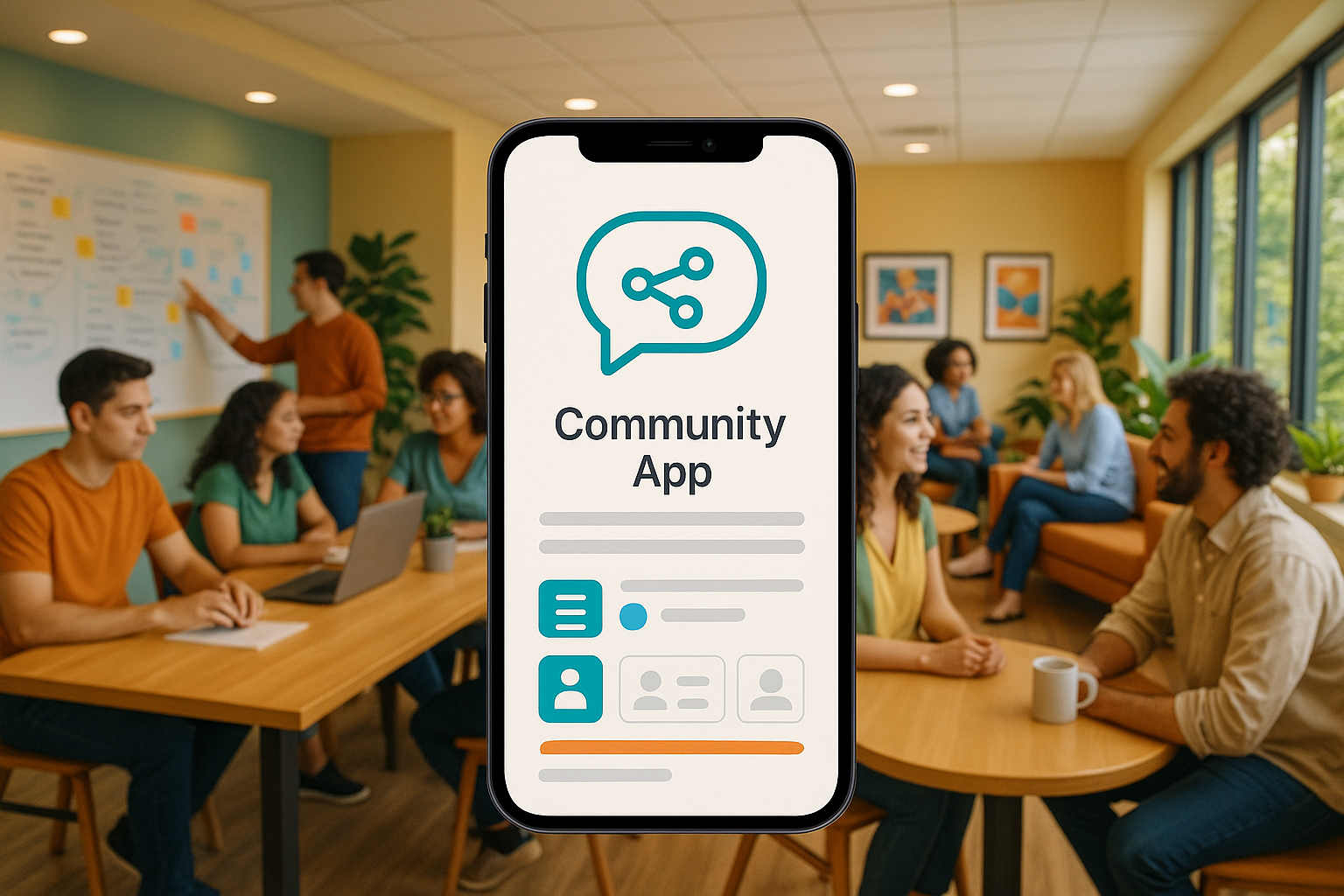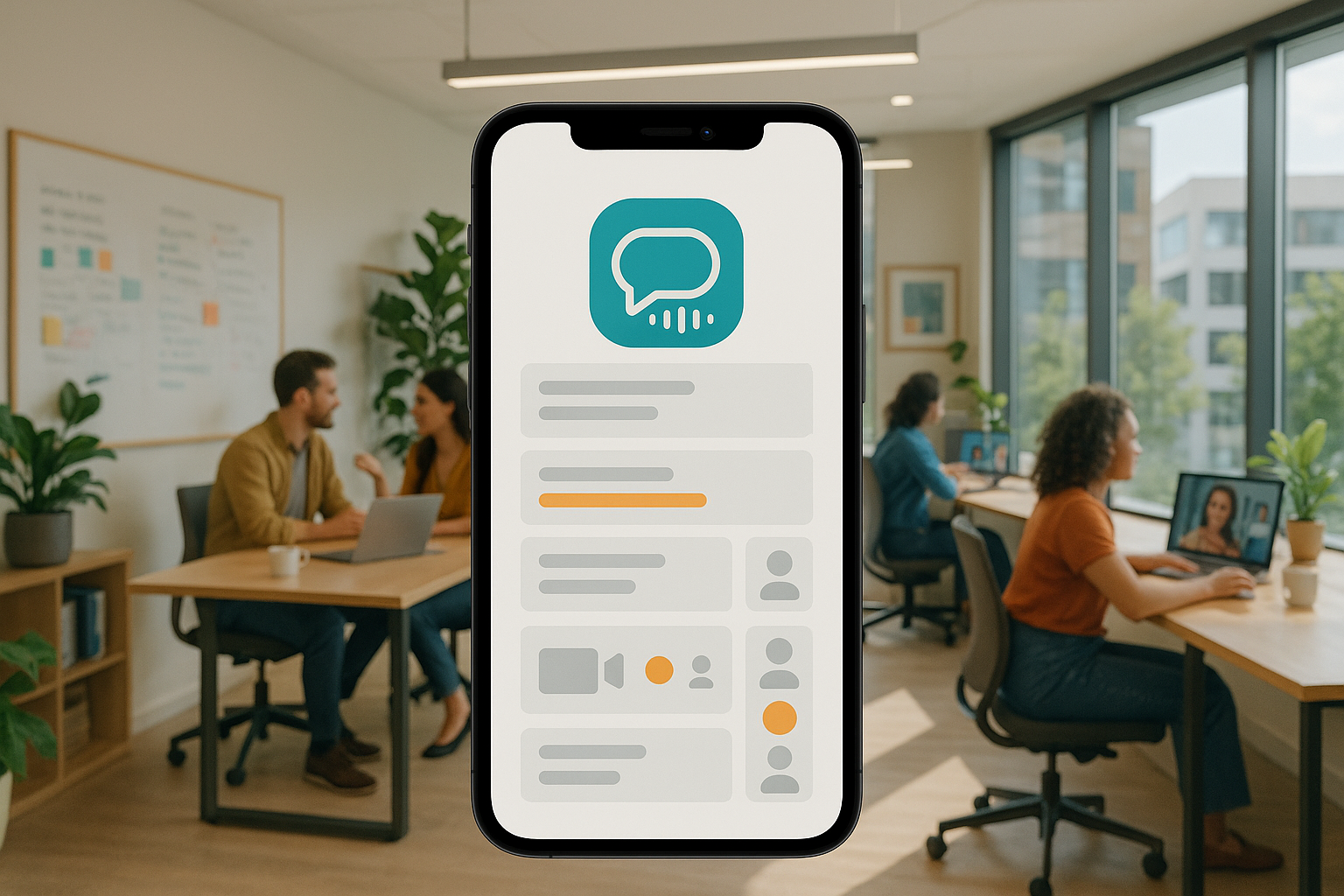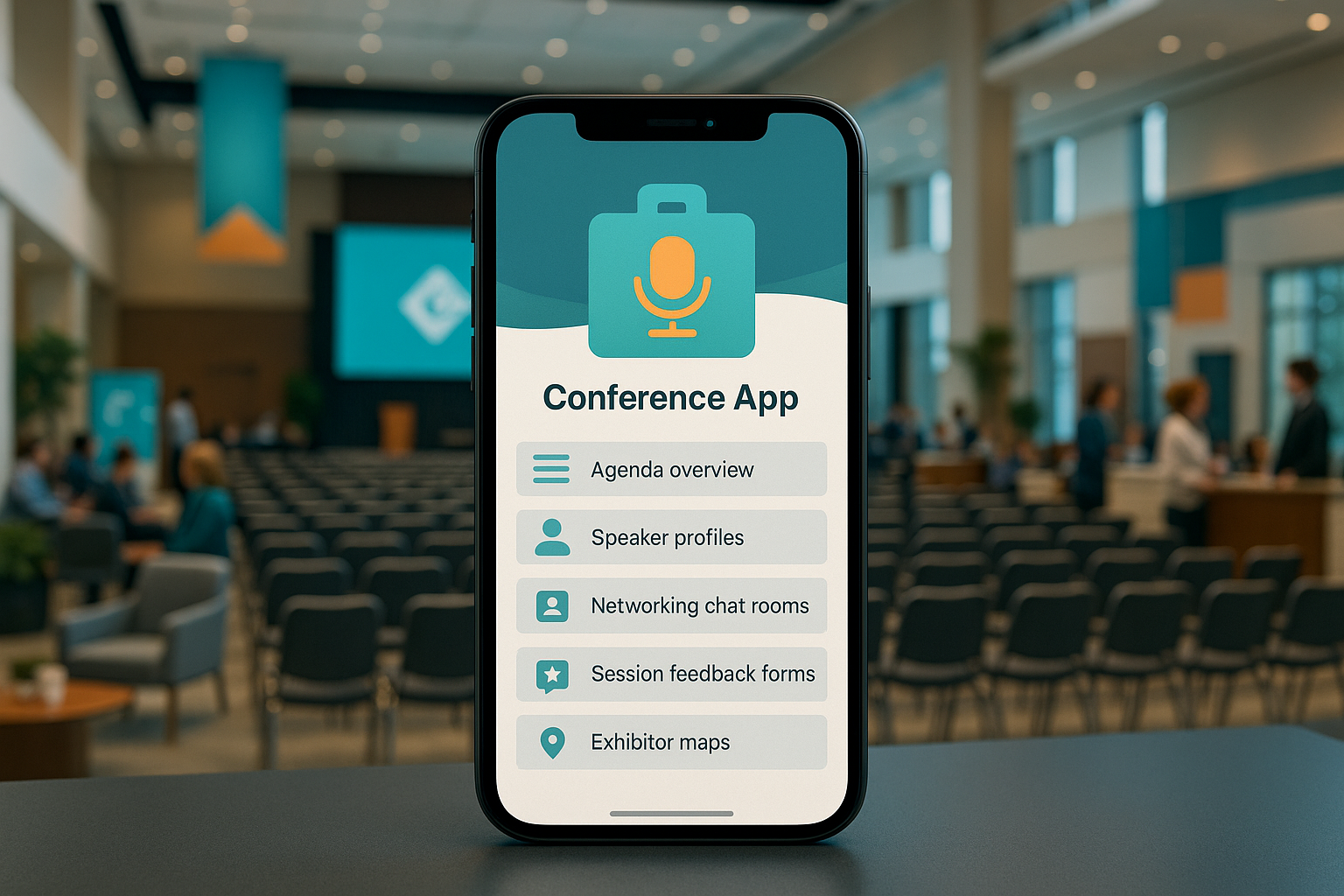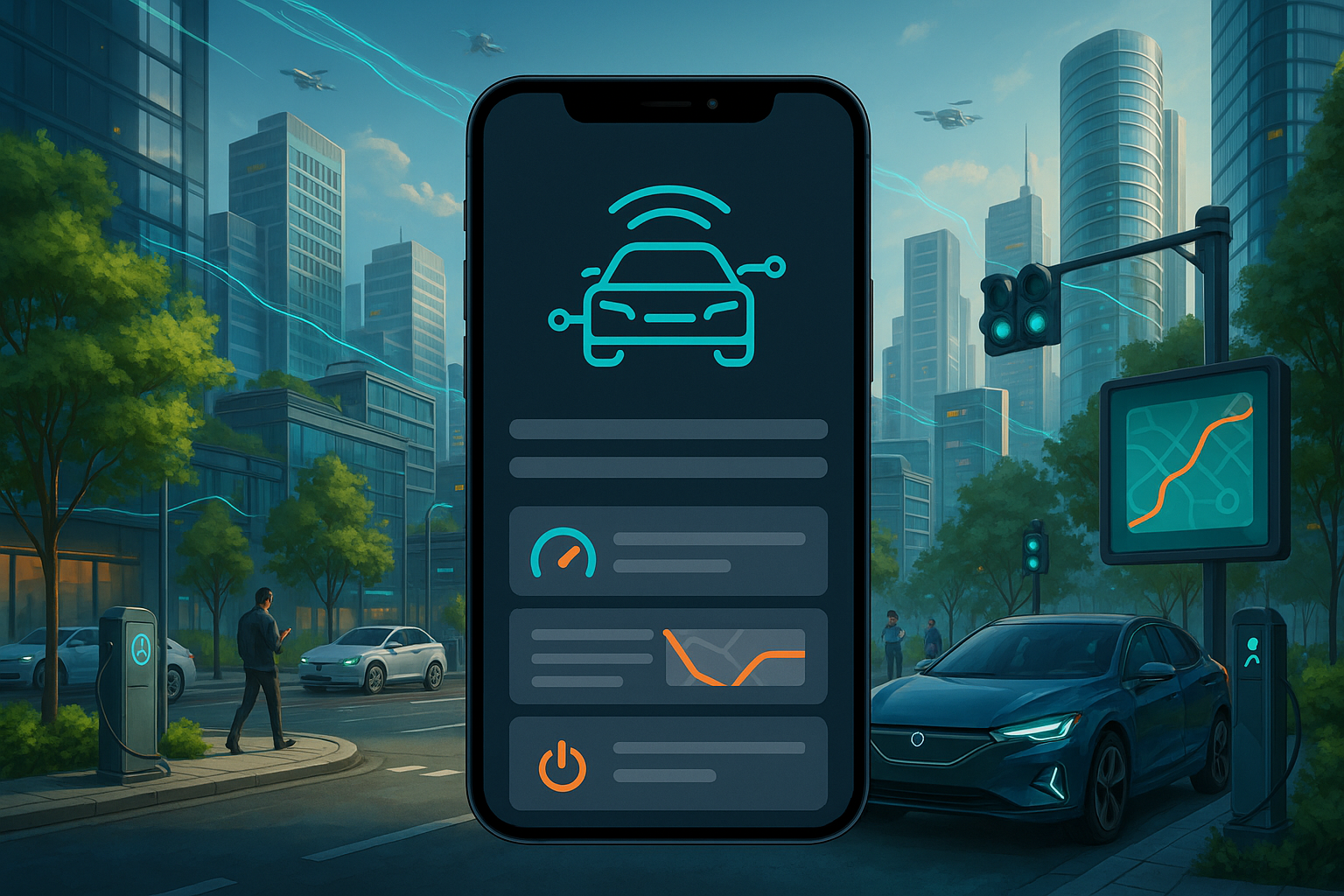The Ultimate Guide to Community App Development in 2024
In today’s hyper-connected digital landscape, building a community is no longer a “nice-to-have”—it’s a strategic imperative. Brands, creators, and organizations are realizing that fostering a dedicated space for users to connect, share, and collaborate is one of the most powerful ways to build loyalty, drive engagement, and create lasting value. However, the path from concept to a thriving digital community is fraught with challenges. Developing a community app from the ground up is an enormously complex and resource-intensive endeavor, often underestimated by even the most ambitious teams.
The problem isn’t just about writing code; it’s about architecting a social ecosystem. It involves understanding user psychology, designing intuitive engagement loops, implementing robust moderation tools, and ensuring the technical infrastructure can scale with your growth. Many ventures sink significant time and capital into in-house development, only to end up with a clunky, unengaging platform that fails to gain traction.
This guide is designed to be your comprehensive resource for navigating the world of community app development. We will demystify the process, providing a clear-eyed view of what it truly takes to succeed. We will explore what a community app is, dissect the core features that make them tick, and outline the significant difficulties of trying to build one yourself. We will also cover the different types of community apps, the potential costs involved, and introduce the leading companies that can help you bring your vision to life.
As a top US AI-powered app development firm, we at MetaCTO have over 20 years of experience turning ambitious ideas into successful mobile applications. We specialize in integrating sophisticated features, including vibrant communities and intelligent AI, into new and existing products. We understand the technical and strategic hurdles, and we’re here to share our expertise to help you build your app the right way, from day one.
What Is a Community App?
At its core, a community app is a mobile or web application designed to bring people together around a shared interest, goal, or identity. It serves as a centralized hub where members can interact, share knowledge, and build meaningful relationships. Unlike general social media platforms where connections can be broad and superficial, a dedicated community app provides a focused environment for deeper engagement.
The primary purpose of these applications is to facilitate key user actions that build a sense of belonging and collective value. These actions typically revolve around four pillars:
- Communication: Enabling seamless and varied ways for members to talk to one another.
- Information Sharing: Providing tools for users to share valuable content, from articles and videos to personal insights.
- Event Coordination: Helping members and organizers plan and execute events that bring the community together, both online and offline.
- Collaboration: Creating spaces where users can work together on projects, solve problems, or support each other’s goals.
To achieve this, a modern community app is built upon a foundation of essential features, each playing a critical role in the user experience.
Core Features of a Community App
A successful community app is more than just a chat room. It’s a rich ecosystem of interconnected tools designed to foster engagement and provide value.
User & Member Profiles
The foundation of any community is its members. User and Member Profiles serve as the digital identity for each person within the app. These are not merely login credentials; they are rich canvases for self-expression and connection.
- Basic Information: Name, photo, and a short bio.
- Interests: A space for members to list their hobbies, skills, or topics of interest, which helps others find like-minded individuals and powers personalization algorithms.
- Activity History: A feed showing a member’s posts, comments, and contributions within the community. This builds social proof and highlights active, valuable members.
Communication Tools
Effective communication tools are the lifeblood of a community. Different tools serve different purposes, and a robust platform offers multiple options.
- Discussion Forums: These are the classic cornerstone of online communities. Forums allow for in-depth, asynchronous discussions where members can thoughtfully respond to topics over time. This format is ideal for detailed problem-solving, sharing complex ideas, and creating a searchable knowledge base.
- Real-time Chat: For more immediate and informal conversations, real-time chat enables instant communication. This can be structured as group channels for specific topics or as direct messaging between members, fostering a sense of immediacy and personal connection.
Content and Engagement
Content is the currency of a community. Providing powerful tools for creating and consuming content is essential for keeping members engaged.
- Content Sharing Capabilities: Users should be able to easily share a variety of media, including articles, images, videos, and other files. This empowers members to contribute value and spark conversations.
- Event Management Tools: These features are critical for moving a community from online interaction to offline or real-time connection. Organizers can use these tools to plan, promote, and execute events like workshops, meetups, or Q&A sessions, strengthening community bonds.
- Live Streams & Virtual Events: In an increasingly remote world, the ability to host live streams and virtual events is crucial. These features allow for real-time interaction on a large scale, perfect for webinars, conferences, and large-scale announcements.
Technical and User Experience Features
A great community experience is underpinned by seamless technology and thoughtful design.
- Push Notifications: A vital tool for re-engagement. Push notifications inform members about important activities, such as new content, responses to their posts, or upcoming events, pulling them back into the app.
- Integrations with Other Platforms: No app is an island. The ability to connect with other tools, apps, and social media platforms can streamline workflows and extend the community’s reach.
- User-Friendly and Accessible Design: A community app must be easy to use. This means clear and consistent navigation, fast loading times, a responsive design that works on all screen sizes, and accessibility features for users with disabilities. Mobile optimization is especially crucial, which can mean developing native apps for iOS and Android or creating a highly responsive web app.
Advanced Features for Growth and Monetization
Beyond the basics, many community apps incorporate advanced features to drive deeper engagement, reward participation, and create revenue streams.
- Gamification: Applying game-like elements can significantly boost participation.
- Points Systems: Award points for actions like posting, commenting, or attending an event.
- Badges or Achievements: Recognize members for reaching milestones.
- Leaderboards: Encourage friendly competition by showcasing the most active members.
- Membership Tiers and Subscriptions: A powerful monetization strategy involves offering different levels of membership.
- Basic Tier: Might offer access to general discussions and content.
- Premium Tier: Could unlock additional features like direct messaging, exclusive content, or access to special events.
- VIP Tier: Can offer high-value benefits like one-on-one coaching, mentoring sessions, or advanced courses.
- In-App Purchases: Allows for transactional revenue by selling special features, digital goods, or exclusive content on a one-off basis.
The Future of Community Apps
The technology landscape is constantly evolving, and community apps are no exception. The next generation of platforms will be smarter, more immersive, and more decentralized.
- AI-Powered Personalization: Artificial intelligence will make communities more relevant and efficient. This includes personalized content recommendations, AI-driven matchmaking to connect members, automated content moderation, and AI chatbots for support and engagement.
- Augmented Reality (AR) and Virtual Reality (VR): Immersive technologies will redefine online interaction. Imagine virtual meetups in 3D spaces, AR-enhanced local events, or immersive learning experiences within educational communities.
- Blockchain Technology: Blockchain offers new models for governance and incentives, such as Decentralized Autonomous Organizations (DAOs) for community governance, tokenized rewards for participation, and secure, transparent voting systems.
- Niche and Micro-Communities: The future is specialized. There is a growing focus on smaller, niche communities that offer deeper connections and more relevant content around specific interests, leading to greater influence for individual members and more opportunities for specialized knowledge sharing.
The Challenge: Why Building a Community App In-House Is So Difficult
The allure of building a custom community platform in-house is strong. It promises complete control, a perfect fit for your brand, and a unique asset you own entirely. However, the reality is that this path is paved with significant, often underestimated, challenges that can derail projects and drain budgets. The facts show that building a functional community engagement platform in-house takes an enormous amount of time and resources.
Here are the primary reasons why the in-house approach is so difficult:
1. Enormous Upfront Investment
The initial development is a massive undertaking. It’s not just about building a chat feature; it’s about architecting a complex, scalable, and secure system with dozens of interdependent features. This requires a dedicated team of designers, frontend and backend developers, and quality assurance engineers working for months, if not years. The estimated time to develop a community app is between 1,000 and 2,000 hours, which translates into a significant financial outlay before you’ve even onboarded your first user.
2. The Ongoing Maintenance Burden
Launching the app is just the beginning. Your platform will require constant attention. You need an in-house tech team ready to react instantly when the server goes down or when bugs and other problems inevitably occur. This isn’t a part-time job; it’s a permanent operational cost. This team must handle security patches, server updates, performance optimization, and bug fixes, all while also trying to develop new features to keep the platform competitive.
3. The Need for Specialized, Cross-Disciplinary Expertise
A great community app isn’t just a technical product; it’s a social one. To succeed, you need more than just developers. Participation specialists must be involved in the application design process to ensure all recent state-of-the-art engagement techniques are integrated. Do you have experts in user psychology, gamification design, and community management on your team? Without this expertise, you risk building a technically sound platform that is socially lifeless.
4. The Hidden Costs of Training and Support
Once your platform is built, who will train your staff to use it? Who will support your community members when they run into issues? A special training program needs to be created for your teams to master running public participation projects. Furthermore, a dedicated support team needs to be allocated to handle user queries. These resources for internal training and support stretch the budget even more, representing a significant and ongoing operational expense.
5. The Risk of Reinventing the Wheel (Poorly)
When you build custom software from scratch, you often miss out on the best practices learned and refined over years by specialized platform providers. You are effectively working in isolation, which can lock you in a box of your own making. Your platform will require much more effort to keep up-to-date with emerging trends in UX, engagement mechanics, and security protocols that expert agencies and platforms incorporate as a matter of course.
6. The Opportunity Cost
Perhaps the most compelling argument against in-house development is the opportunity cost. Even if you can secure the enormous resources required, that budget and focus could almost certainly be better spent elsewhere—on marketing, content creation, community management, or other core business activities that directly drive growth.
Given these substantial hurdles, partnering with a specialized development agency like us is often the most strategic, efficient, and cost-effective path forward. We provide not just the technical muscle but the deep, specialized expertise in community-building needed to succeed. You can leverage our experience to launch faster, reduce risk, and focus on what you do best: serving your community.
Different Types of Community Apps
Community apps are not a one-size-fits-all solution. They can be tailored to serve a wide variety of purposes and audiences. Understanding the different types can help you clarify your own goals and choose the right features for your audience.
1. Social Networking Platforms
These are the most familiar type of community app, designed to connect people based on existing relationships (like friends and family) or shared interests. While massive platforms dominate this space, many successful apps offer features for creating smaller, more focused communities within the larger platform, catering to specific niches.
2. Interest-Based Communities
These apps focus squarely on a specific passion or lifestyle. They cater to users with dedicated hobbies (e.g., photography, gardening, vintage cars) or interests (e.g., vegan cooking, minimalism, board games). The entire user experience is optimized to facilitate discussion, knowledge sharing, and connection around that single topic, creating a highly relevant and engaged environment.
3. Professional Networking Apps
Focused on career development and business connections, these platforms are the digital equivalent of an industry conference. They go beyond simple connections to include features like job boards, skill endorsements, and access to professional development resources. The goal is to help members grow their careers, find collaborators, and stay informed about their industry.
4. Learning and Education Communities
These apps create dedicated spaces for learners to connect with instructors and peers. They are often tied to specific courses or educational institutions. Key features include access to course materials, forums for discussing assignments, and tools for engaging in collaborative learning experiences, effectively extending the classroom into a dynamic, interactive online space.
5. Nonprofit and Cause-Based Apps
These platforms serve a powerful purpose: to bring together individuals who are passionate about specific social issues or causes. They are designed to facilitate discussion, organize activism, and coordinate volunteer efforts. These apps can be instrumental in mobilizing groups for social change, fundraising, and awareness campaigns.
Cost Estimate for Developing a Community App
As established, building a community app is a significant investment. Based on industry analysis, the financial and time commitments are substantial.
| Metric | Estimated Range |
|---|---|
| Development Cost | $50,000 – $200,000 |
| Development Time | 1,000 – 2,000 hours |
This wide range depends on several factors:
- Platform Complexity: An app with basic forums and profiles will be on the lower end, while an app with live streaming, complex membership tiers, and AI-powered personalization will be on the higher end.
- Platform Choice: Developing native apps for both iOS and Android is typically more expensive than creating a single, highly responsive web app.
- Team Location: Development rates vary significantly around the world.
This cost underscores the importance of a clear strategy. Investing this amount of capital demands a partner who can ensure a return on that investment through a well-built, engaging, and monetizable product. At MetaCTO, our Rapid MVP Development process is designed to validate your core idea and get a functional product to market in just 90 days, helping you de-risk this significant investment and start gathering real user feedback quickly.
Top Community App Development Companies
Choosing the right partner is the single most important decision you will make in your community app journey. The right company brings not only technical skills but also strategic guidance and industry expertise.
1. MetaCTO
As a premier AI-powered mobile app development agency, we at MetaCTO offer a unique and powerful approach. We don’t just build apps; we build businesses. Our expertise lies in creating deeply integrated, custom mobile solutions that leverage cutting-edge technology to drive engagement and revenue.
While some companies offer templated solutions, we specialize in building custom apps and integrating complex community features into new or existing products. Many businesses already have an app but struggle with user retention and engagement. This is where we excel. Integrating a vibrant community into your existing mobile app can be incredibly hard. It requires a deep architectural understanding to seamlessly weave social features into your core product without compromising performance or user experience. You have to manage user authentication, data synchronization, a unified notification system, and a cohesive design language.
Hiring a development agency like us solves this problem. We handle the entire process—from strategy and design to a seamless build and launch. Our expertise in custom mobile app development and AI allows us to:
- Architect for Integration: We design community features that feel like a natural extension of your app, not a bolted-on module.
- Leverage AI for Engagement: We can implement AI-driven personalization, smart moderation, and AI-powered support to create a stickier, more valuable community experience. We have a track record of integrating AI to deliver personalized insights and coaching, as seen in our work with the Bond dating app.
- Ensure Scalability and Performance: Our robust backend engineering ensures your app can handle a growing and active user base.
- Guide Monetization Strategy: We help you implement effective monetization models, from subscriptions and membership tiers to in-app purchases, turning your community into a revenue driver.
With over 120+ successful projects and a 5-star rating on Clutch, we are the ideal partner for startups and SMBs looking to build a technology roadmap that increases profit and valuation.
2. Mighty Pro
Mighty Pro has established itself as an excellent option for creators and brands whose primary goal is to build a standalone social media app centered on community, courses, content, and commerce. They have a track record of building apps for prominent clients like TED, Drew Binsky, and Sadie Robertson Huff.
Their platform makes it “radically easier” to create a thriving app by providing a suite of powerful, built-in features, including:
- Flexible Spaces: Configurable areas for discussion forums, chat, messaging, live streaming, and courses.
- Monetization: The ability to charge for memberships, courses, events, or bundled offerings in 135 different currencies.
- AI-Powered Assistance: Their Mighty Co-Host™ provides AI features like an Infinite Question Generator and automatic course outlines to help creators generate content and spark engagement.
Mighty Pro is a fantastic platform-based solution that is often cheaper and faster than building a fully custom app from scratch. They handle the development, submission to the app stores, and ongoing proactive upgrades. For those whose needs align perfectly with the Mighty Pro platform, it represents a better product than many custom alternatives because it is constantly being updated with new features based on the needs of thousands of communities.
The choice between a custom development partner like MetaCTO and a platform like Mighty Pro depends on your strategic goals. If you need to deeply integrate community features into a unique, pre-existing product or require a level of customization and AI integration that goes beyond a platform’s capabilities, MetaCTO is your strategic partner. If your goal is a standalone community-first app and your needs fit within their powerful framework, Mighty Pro is a top contender.
Conclusion: Build Your Community the Right Way
We’ve covered the landscape of community app development, from the foundational features that drive engagement to the diverse types of communities you can build. We’ve also explored the significant costs and daunting challenges of attempting to build a platform in-house—a journey filled with technical hurdles, hidden expenses, and strategic pitfalls. The evidence is clear: for most organizations, the smart, efficient, and effective path to a successful community app is through a partnership with experts.
Choosing the right partner, whether it’s a flexible platform like Mighty Pro or a custom development agency like us, is crucial. The right choice provides you with more than just code; it gives you a strategic advantage, a wealth of experience, and a clear path to launching a product that your members will love.
At MetaCTO, we are more than just developers; we are architects of engagement. We believe that a well-integrated community can transform an ordinary app into an indispensable part of your users’ lives. Our expertise in mobile development, AI integration, and monetization strategy empowers you to not only build a community but to create a thriving, self-sustaining digital ecosystem.
If you’re ready to unlock the power of community and integrate it into the core of your product, let’s talk.
Talk with a Community expert at MetaCTO to integrate Community into your product.






